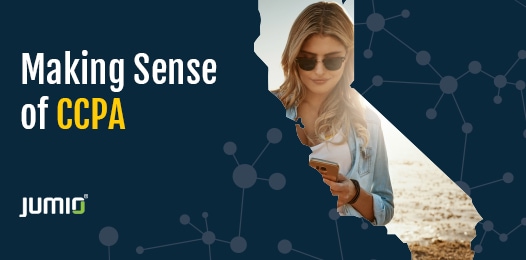
Is your business ready for January 1, 2020? This is the date when the California Consumer Privacy Act, or CCPA, is slated to take effect. It’s expected to be the strictest data privacy law in the U.S., and will require data privacy protections and requirements similar to or broader than those imposed by GDPR.
The CCPA grants California residents an array of new rights, starting with the right to be informed about what kinds of personal data companies have collected and why it was collected. Among other novel protections, the CCPA stipulates that consumers have the right to request the deletion of personal information, opt out of the sale of personal information, and access the personal information in a “readily useable format” that enables its transfer to third parties without hindrance.
While the CCPA technically applies only to California residents, it will most likely have much broader implications — consider that most major companies that deal in consumer data have some California customers.
There’s a solid chance your business still has some serious work to do in order to get ready for the CCPA. In fact, a recent TrustArc study found an alarming 86 percent of the study’s respondents have not completed preparations to become compliant.
If you’re trying to make sense of the CCPA and what your business might need to do in order to prepare for January 1, 2020, you’ll want to check out our new Guide to CCPA Readiness for Online Identity Verification. With this guide, you’ll learn:
- If the CCPA applies to your organization
- The nitty gritty of the CCPA and consequences of non-compliance
- How your online identity verification program is impacted and what to look for in a CCPA-compliant solution
- How to verify consumers requesting CCPA information
- Best practices to help your business prepare for CCPA
- And more!
Download our new guide to learn how Jumio can help your business comply with the CCPA.
